Lukovnik: An old Russian vegan onion pie (RECIPE)
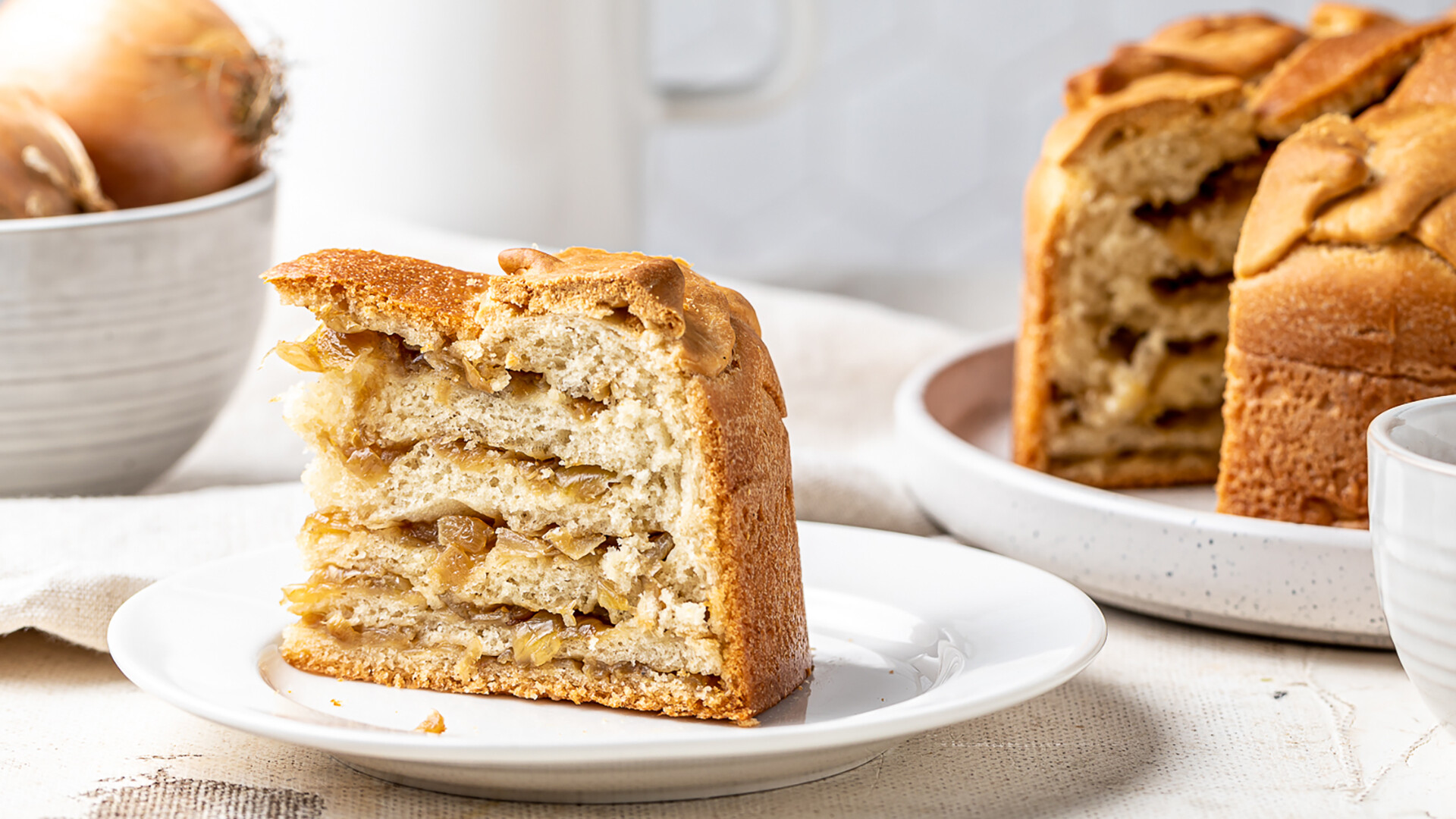
The first official mention of lukovnik dates to a 16th century book detailing daily household life in Russia. Domostroy was first published during the era of Ivan the Terrible and it lists lukovnik among vegetarian dishes that were acceptable during Lent. The absence of dairy products and meat in the recipe did not mean that the dish was any less delicious. Rather, it was even an advantage. The simplicity and minimal amount of ingredients allows one to enjoy the main flavor of the dish to the fullest.
Lukovnik is a multi-layered closed pie. As the dough is based on water and vegetable oil, it is quite pliable, as well as easy to unmold and it does not stick to your hands.
What exactly this pie looked like in the past is anyone's guess. Today, there are several types of onion pie moldings. The classic version is a round or rectangular pie with several layers. Such pies are decorated with dough ornaments in the shape of twigs, leaves or flowers.
A recent new type of stylization of this pie has appeared in the form of rolls. The flatbreads of raw dough are layered with onion filling, sliced crosswise into 8 or 12 pieces, rolled up and carefully placed in a mold.
For the filling, modern housewives use not only onions, but also green onions or leeks. I used the classic version with white onions. For a special twist, I added fenugreek powder to the filling.
The pie seems intricate, but it is quite easy to make. And, of course, it is delicious, even the next day, if there is any left over.
Ingredients for 6 servings (18 cm mold):
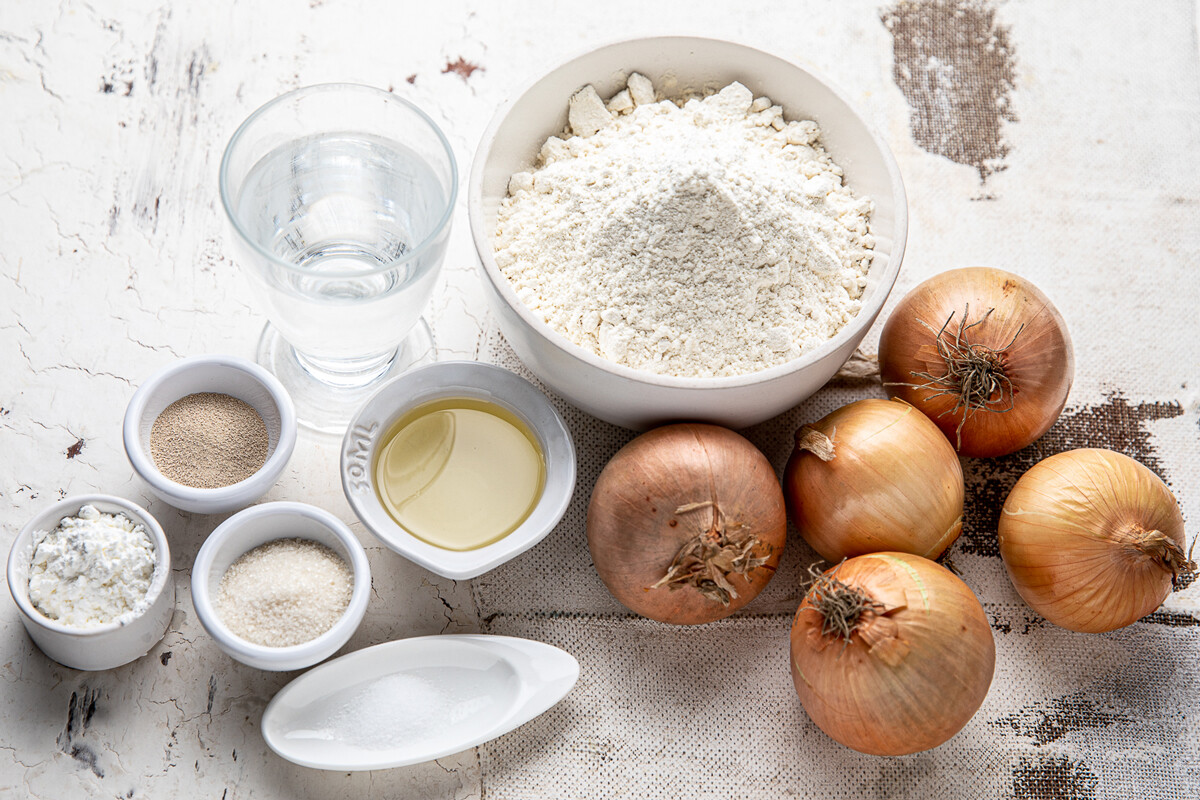
Dough:
- Flour - 330 g
- Starch - 1 tbsp
- Water - 150 ml
- Sunflower oil - 40 g
- Dry yeast - 6 g
- Sugar - 1 tbsp
- Salt - 1 tsp
Filling:
- Onions - 800 g
- Salt, black pepper, fenugreek - to taste
- Sunflower oil for frying
Preparation:
1. Dissolve yeast and sugar in warm water. Add oil.
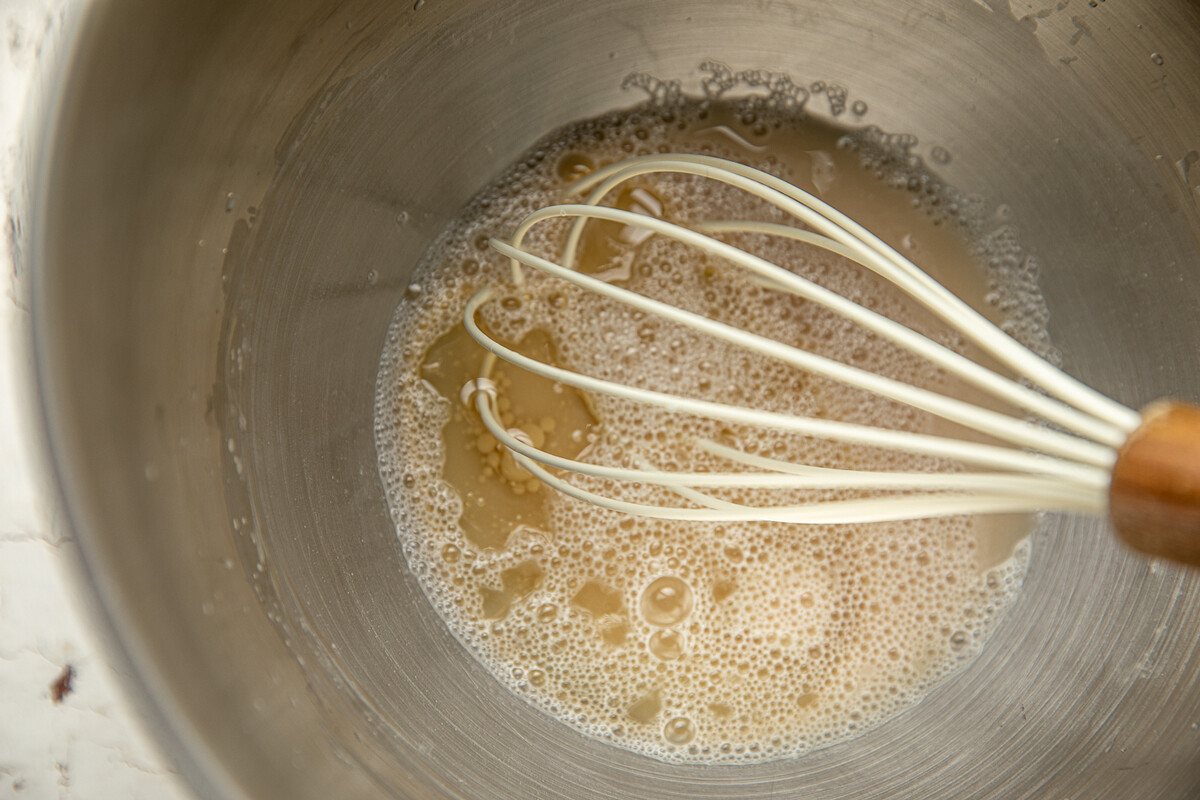
2. Mix flour with salt and starch and add it to the water. Knead the dough in a mixer. Continue to knead the dough for about 15 minutes until it becomes elastic.
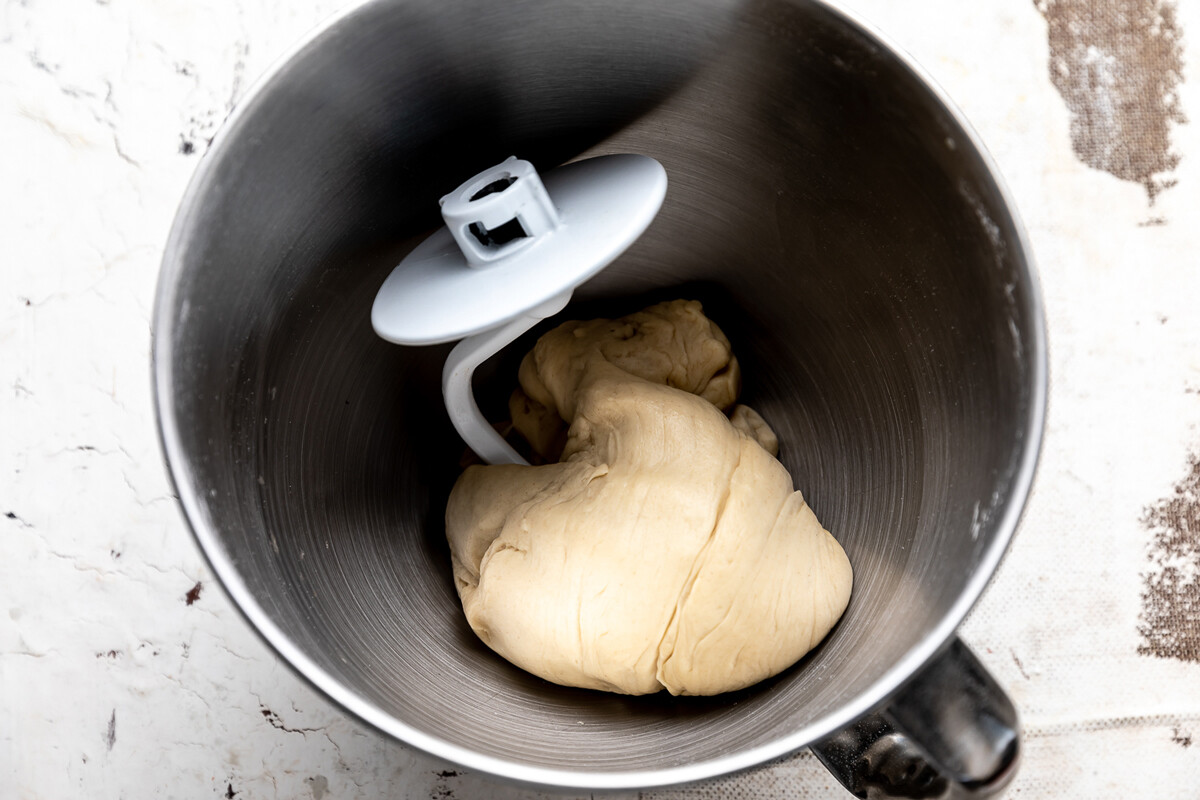
3. Cover the dough with a towel and leave it to rise while you prepare the filling.
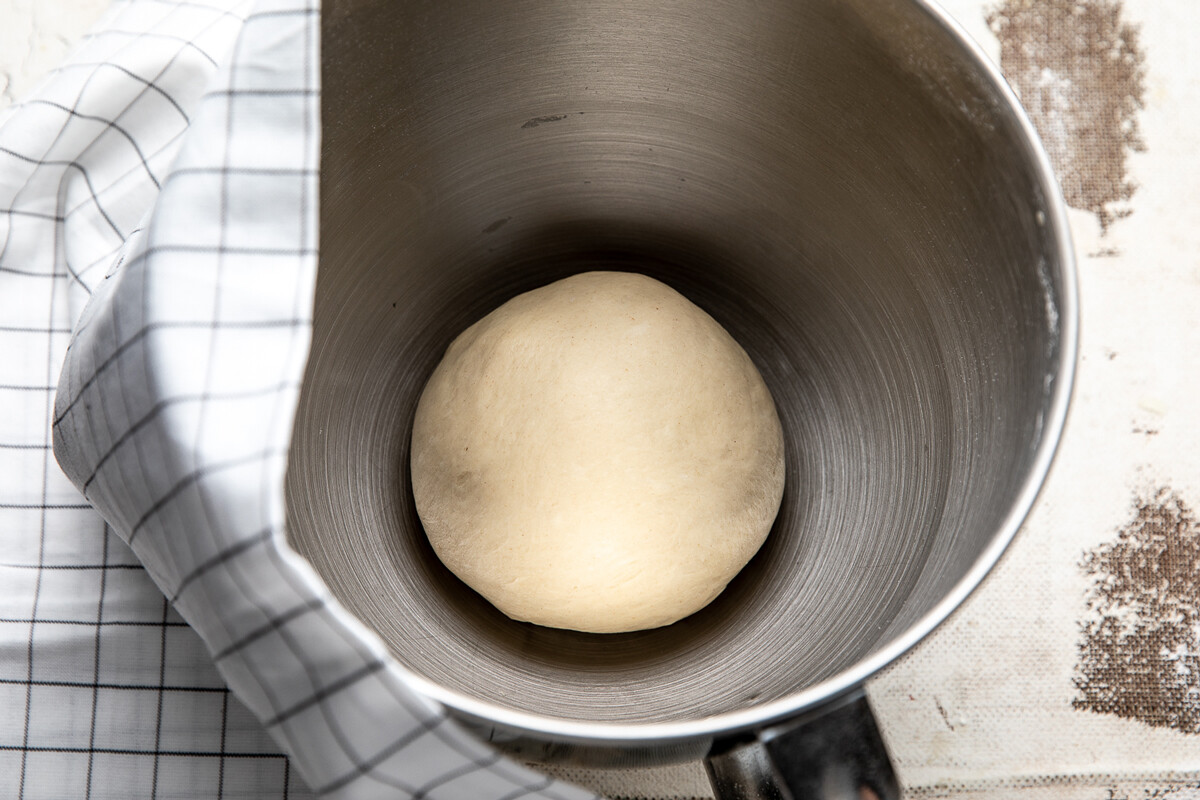
4. Peel and finely dice the onions.
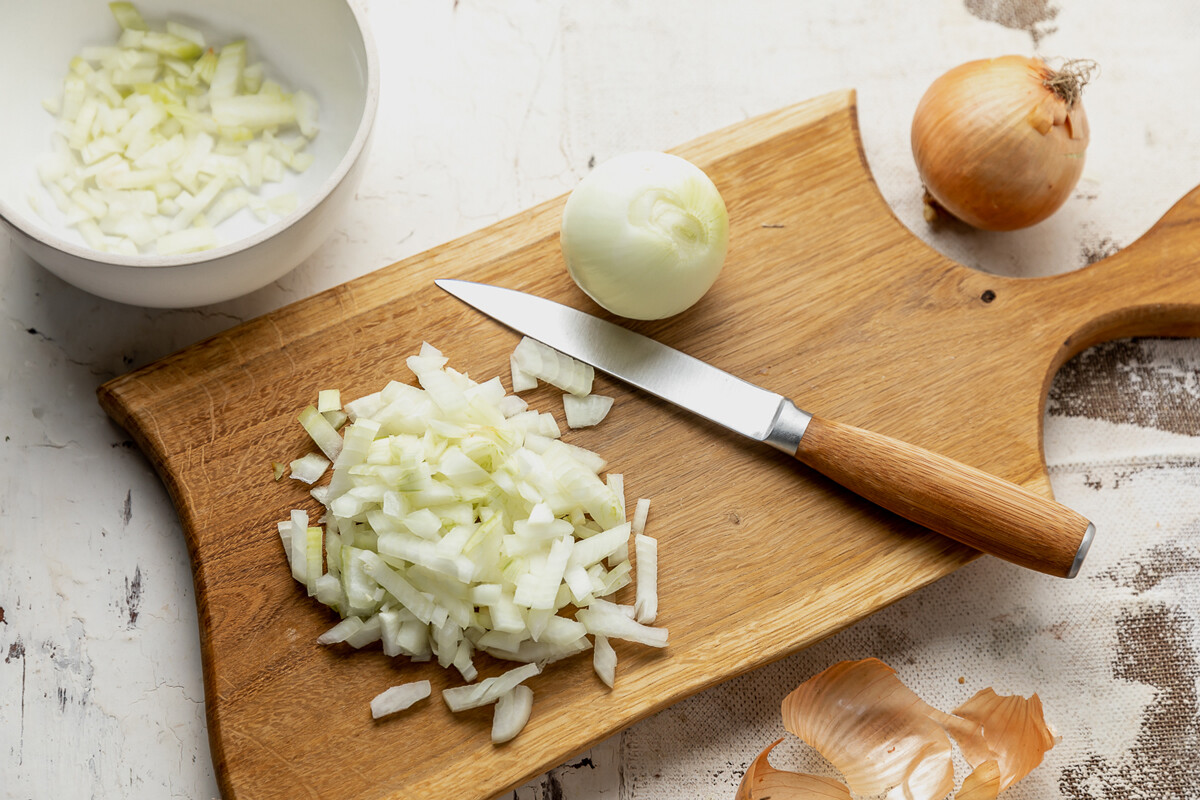
5. Fry the onions in oil until they are translucent and golden, stirring constantly. This may take 25-30 minutes. Salt, pepper and add fenugreek if desired. Allow the onions to cool.
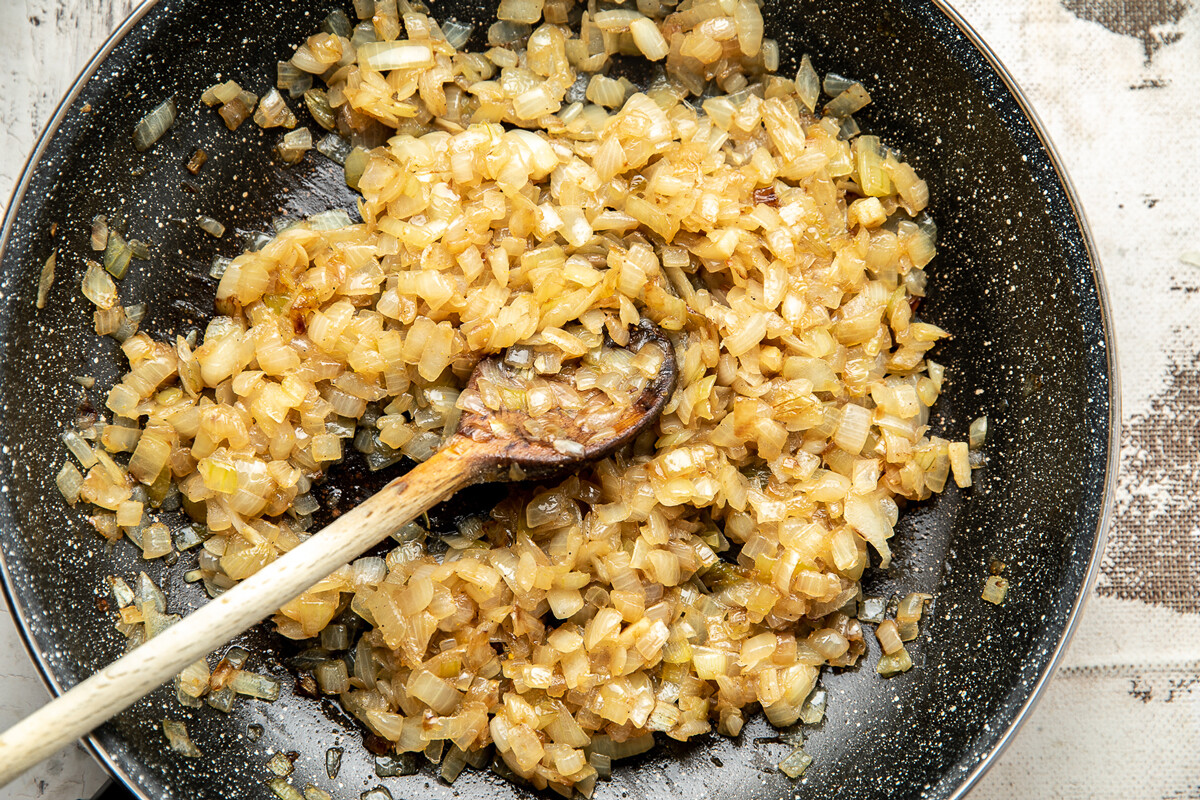
6. Divide the dough into 6 pieces: 4 pieces equal, one larger for the bottom, one smaller for the decoration.
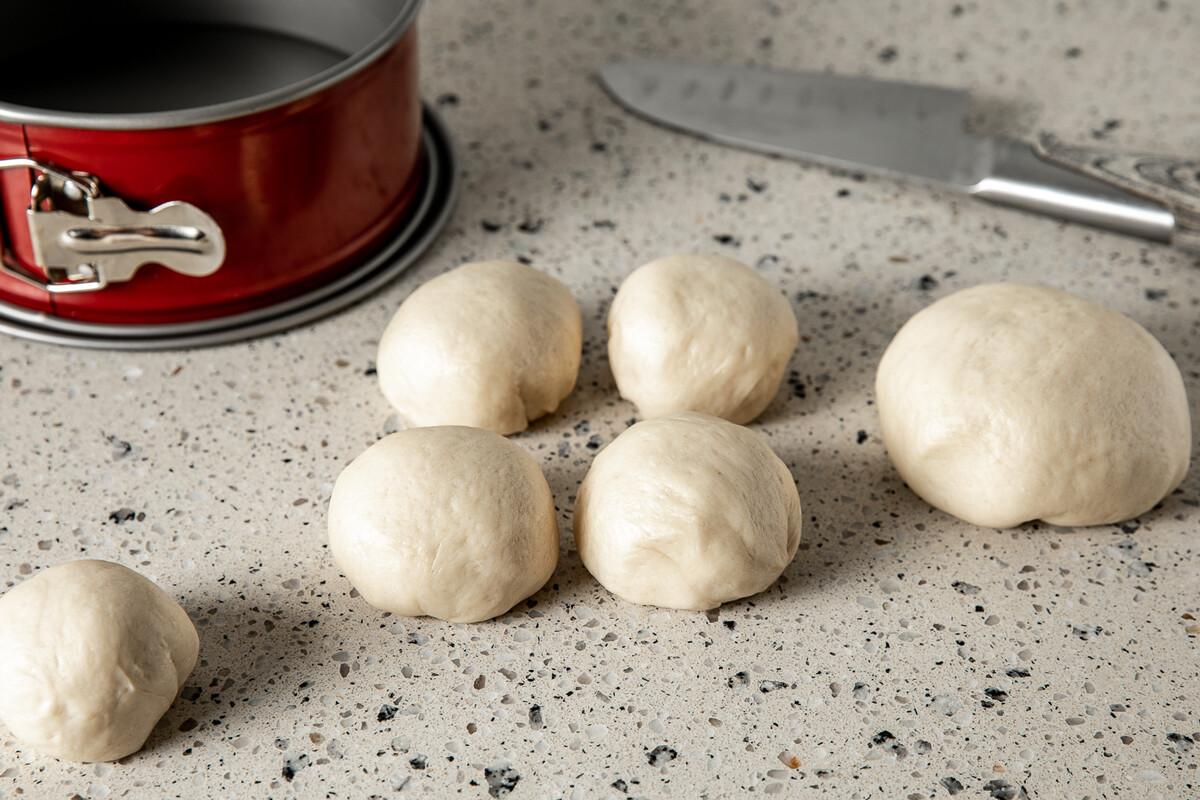
7. Grease a baking dish with oil. Roll out the largest piece of dough.
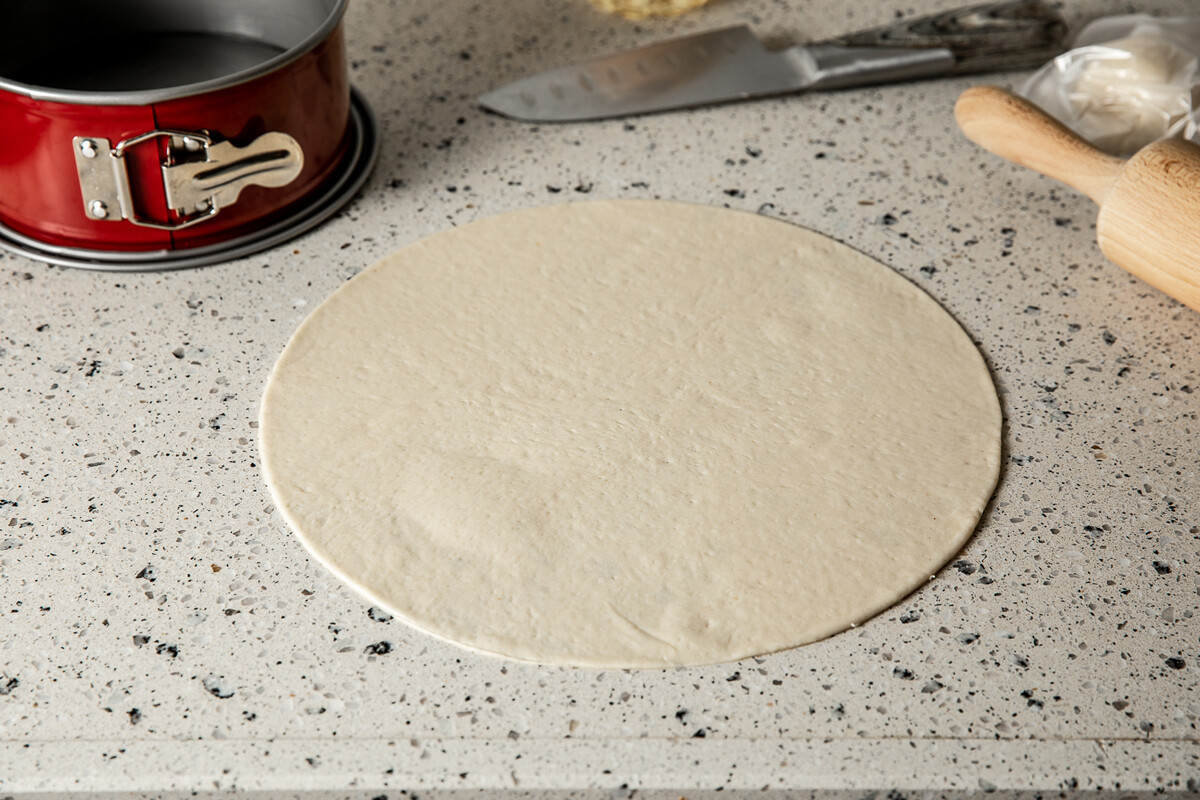
8. Place it gently into the mold, making a high rim.
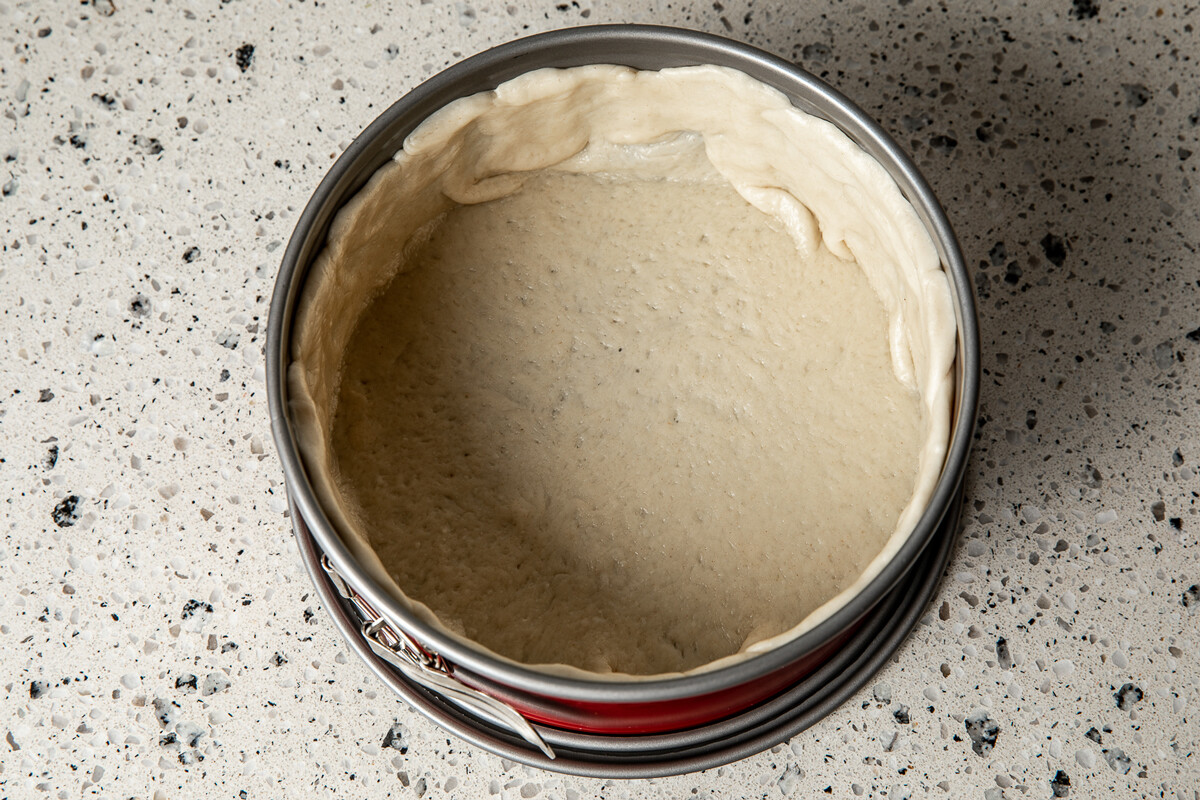
9. Spread the filling on this first sheet.
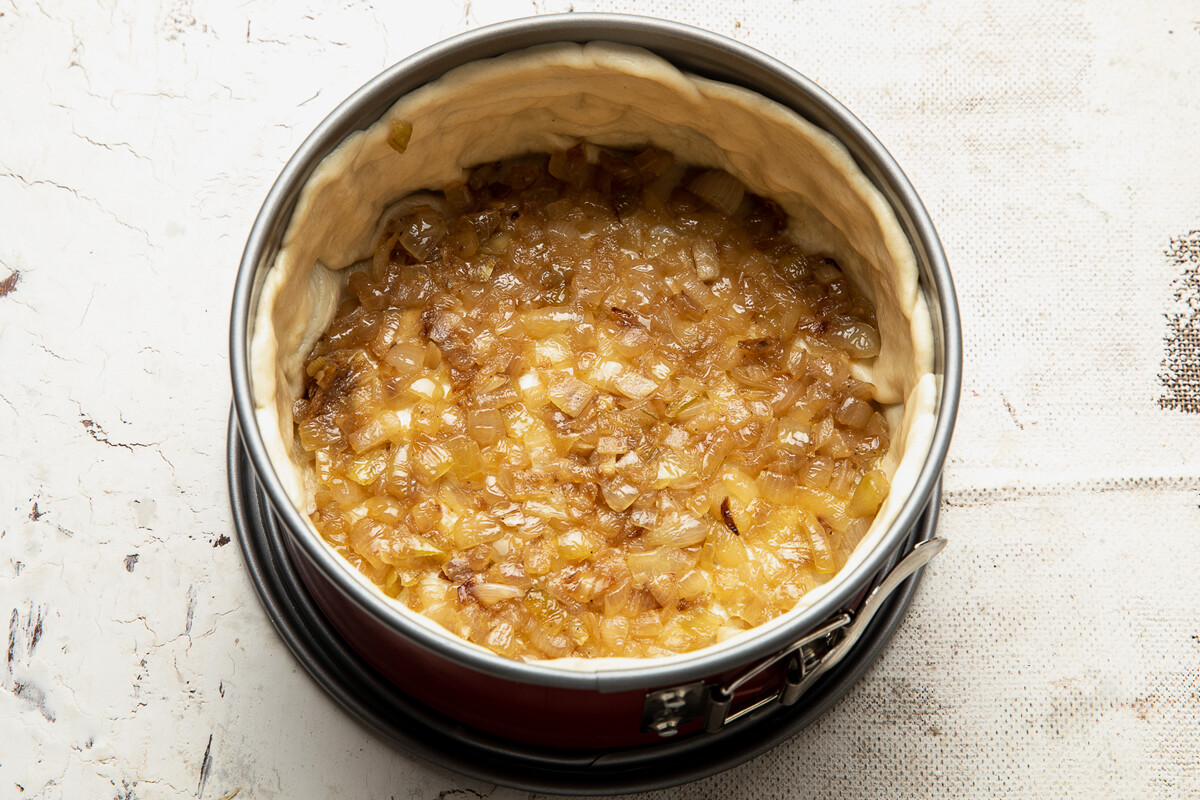
10. Roll out one of the four equal balls with a rolling pin. Place it on top of the filling.
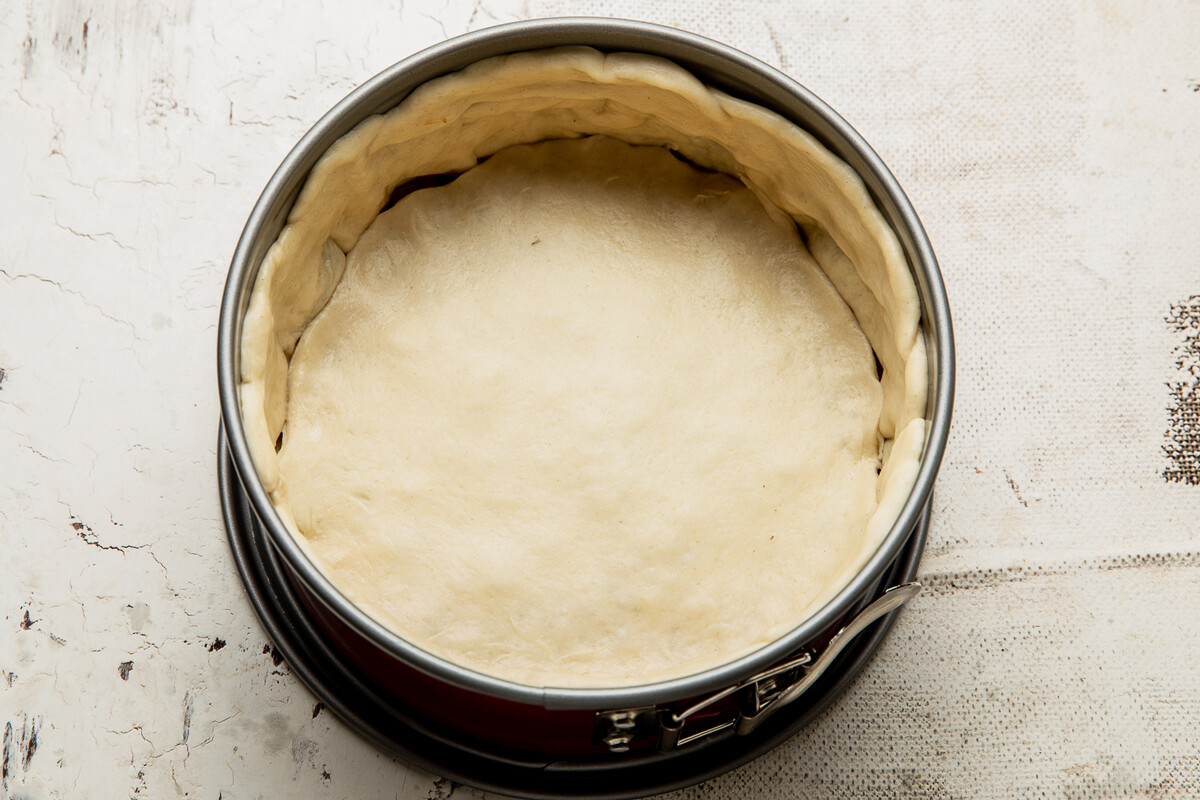
11. Do the same with the other two balls and bend the edges at the end. (In the process, I got pretty thin and elastic flatbreads. I trimmed the edges. So, I had dough left over for one more extra layer.)
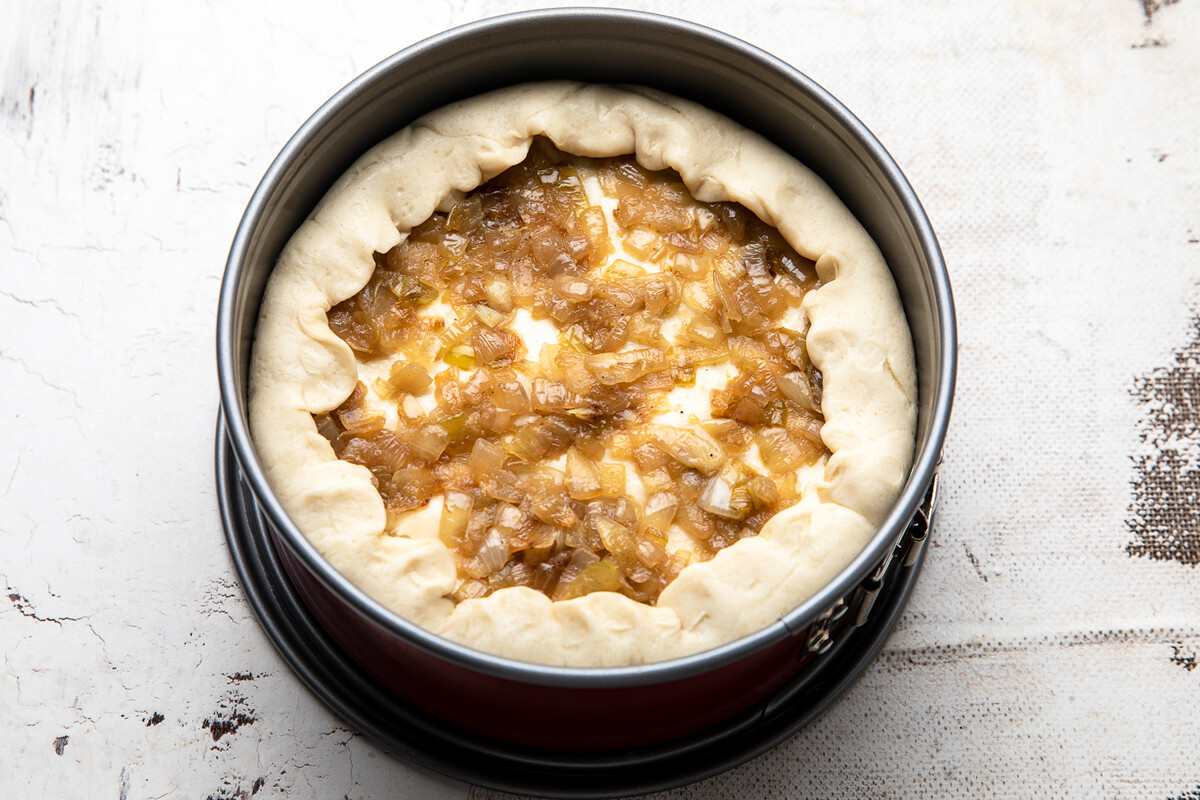
12. Placing the last layer press the pie and seal the gaps.
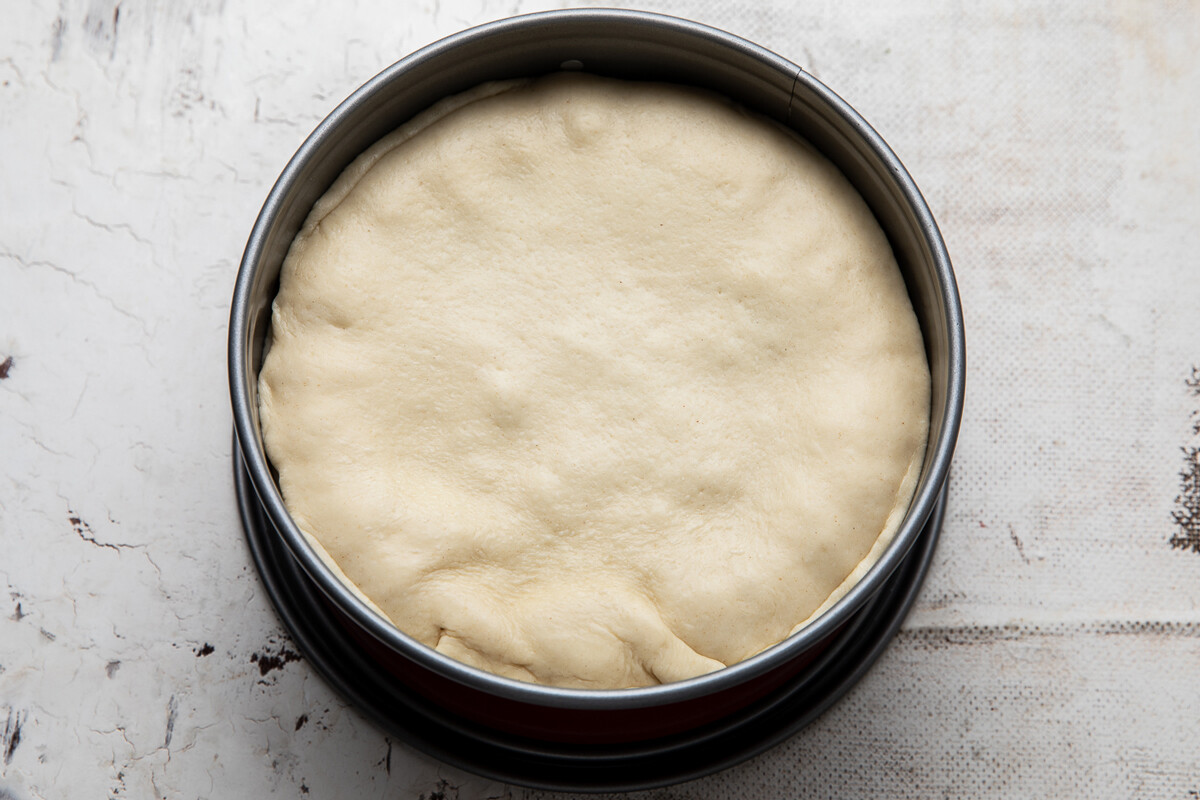
13. From the smallest ball, if desired, make a decoration in the form of leaves. Brush the pie with sunflower oil. Put the pie in a preheated 190°С oven for 50-60 minutes.
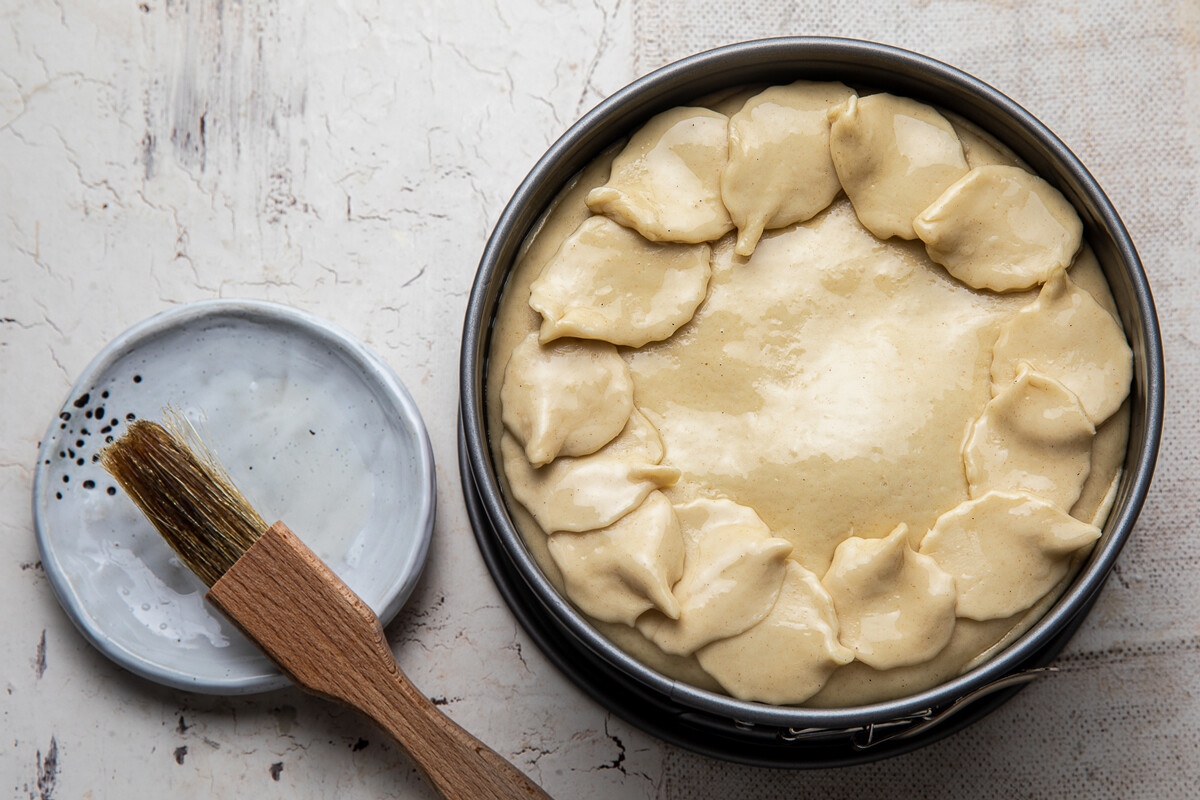
14. Allow the pie to cool.
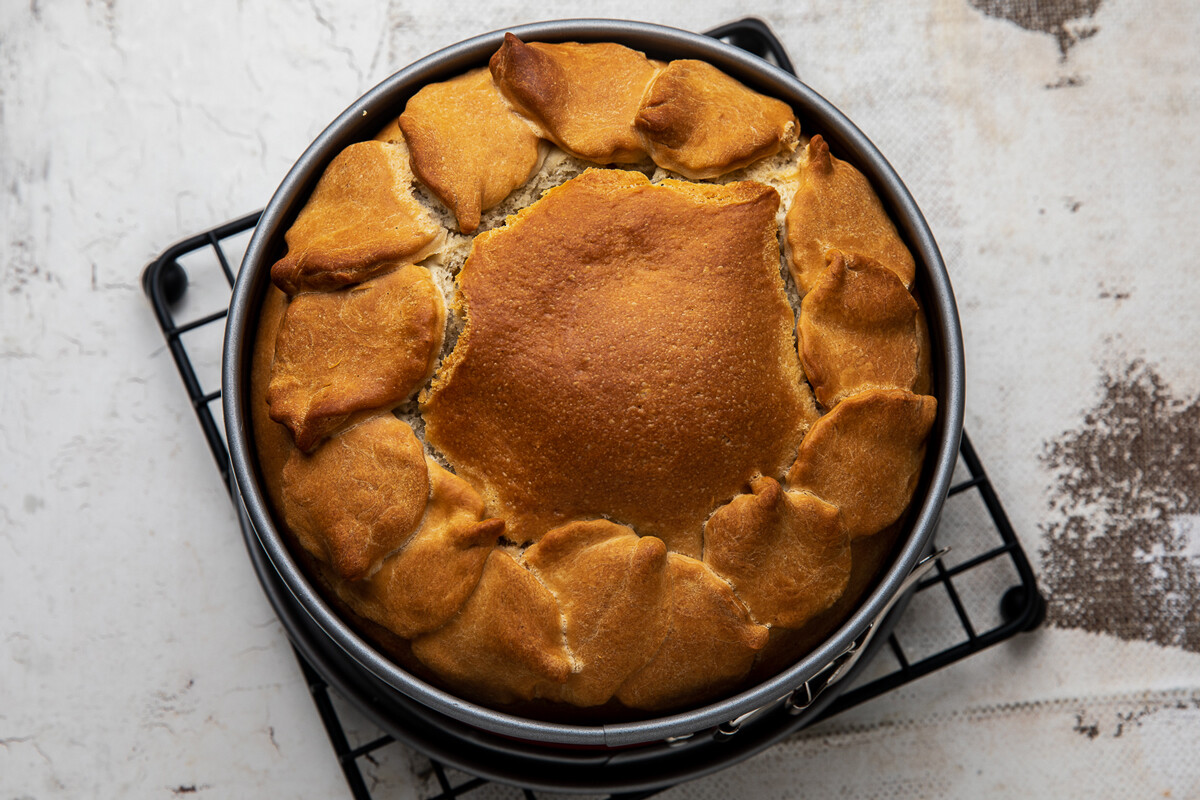
15. The pie is delicious when it's warm, but it's also lovely when it's cold. Lukovnik pie is great as an appetizer, as well as to serve with soup or salad. You can also easily take it with you on a picnic. Enjoy!
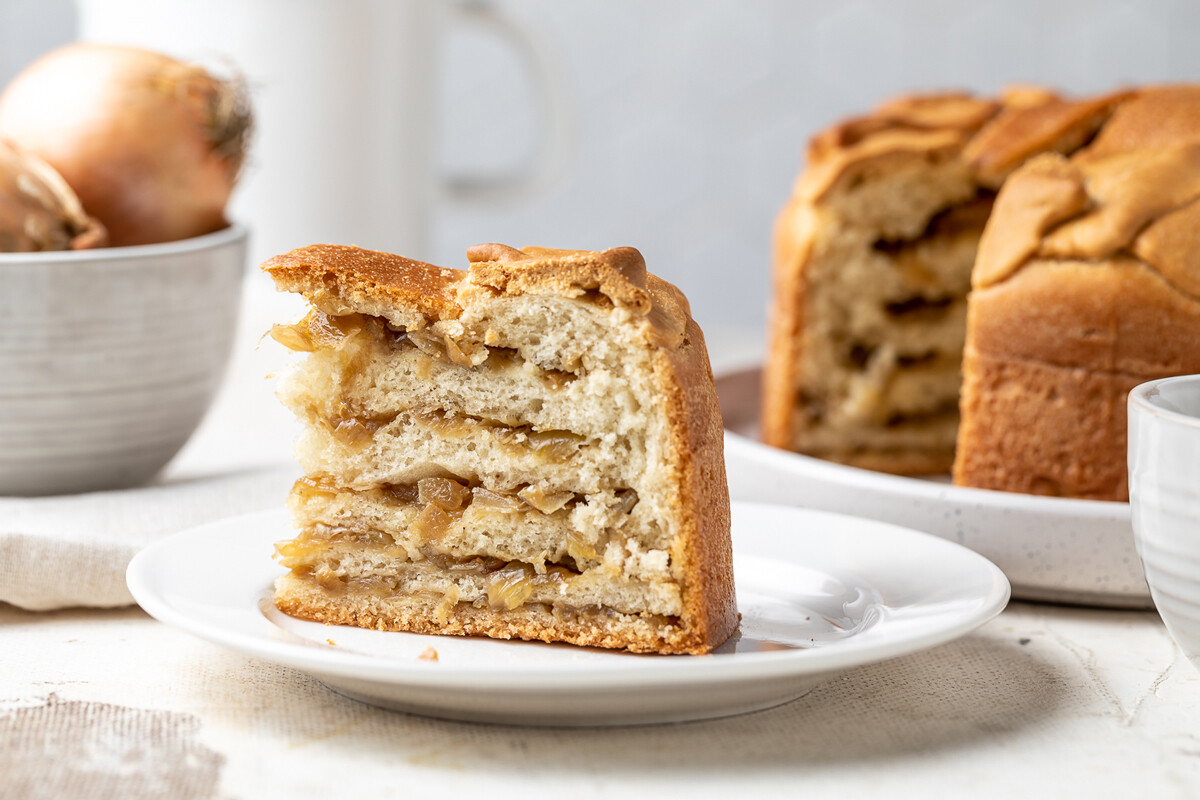
READ MORE: How to prepare savory Dagestan khinkal with green onions (RECIPE)

